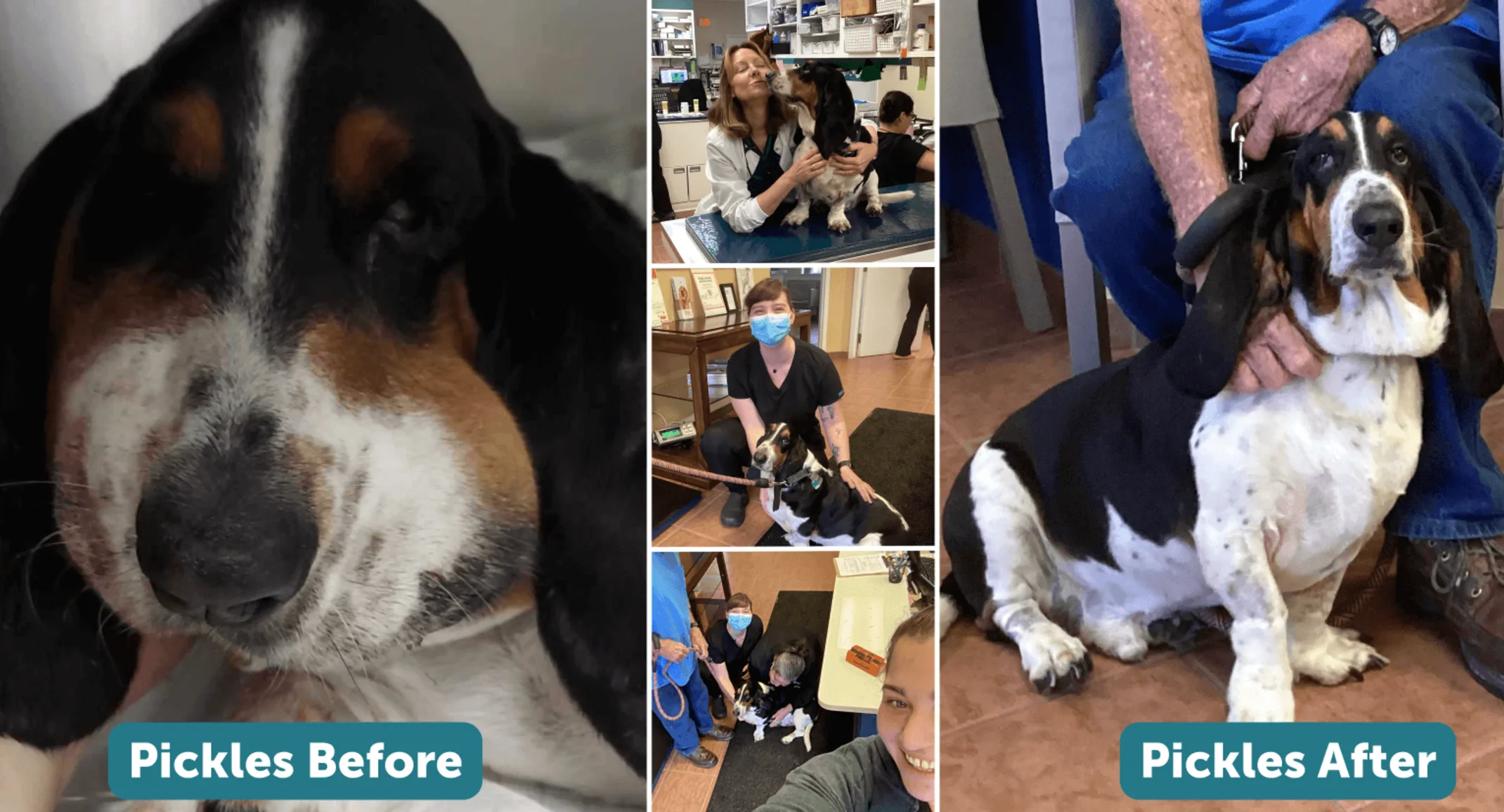Pickles' Story
General

Pickles, like many Floridians, is accustomed to encountering wildlife in his daily adventures. However, in March, he faced a new challenge when he came face to face with a rattlesnake. His human dad quickly realized the severity of the situation as Pickles had sustained a bite on his chin. Without hesitation, he rushed Pickles to FVRC (Florida Veterinary Referral Center), where the emergency team promptly triaged him to the ICU. Confirming the rattlesnake bite, Pickles presented with significant facial swelling, puncture wounds on his chin, bleeding from his mouth, and petechial bruising on his abdomen, leading to a guarded prognosis.
Upon his arrival, Pickles faced severe external and internal bleeding, accompanied by elevated coagulation levels beyond measurement. The emergency and critical care team worked to stabilize Pickles' condition with IV fluids, antivenom, antibiotics, and pain medication. However, as Pickles exhibited no immediate response and his condition did not stabilize, a second dose of antivenom was administered. Fortunately, Pickles began to show signs of improvement, displaying increased alertness and reduced bleeding from the mouth.
Pickles was hospitalized in the intensive care unit, where the team at FVRC continued to provide supportive care, monitored Pickles' bleeding, hypotension, and managed his pain. By the third day, Pickles was eating well, his facial swelling was diminishing, and his red blood cell count had stabilized; he was ready to go home! Three days post-discharge, recheck bloodwork revealed normalized platelet levels, rising hematocrit, and no signs of tissue necrosis. Within two weeks, Pickles had returned to his normal, happy self, much to the delight of his human dad, who likened his happiness to "a pig in mud."
Rattlesnake venom, containing hemotoxins, poses a grave threat, leading to blood cell destruction, severe pain, tissue damage, swelling, internal hemorrhage, and collapse. Swift access to antivenom proved pivotal in Pickles' survival. While the likelihood of a pet encountering a rattlesnake bite remains low, FVRC is always prepared with lifesaving antivenom to aid in such emergencies, ensuring the best possible outcome for patients.
